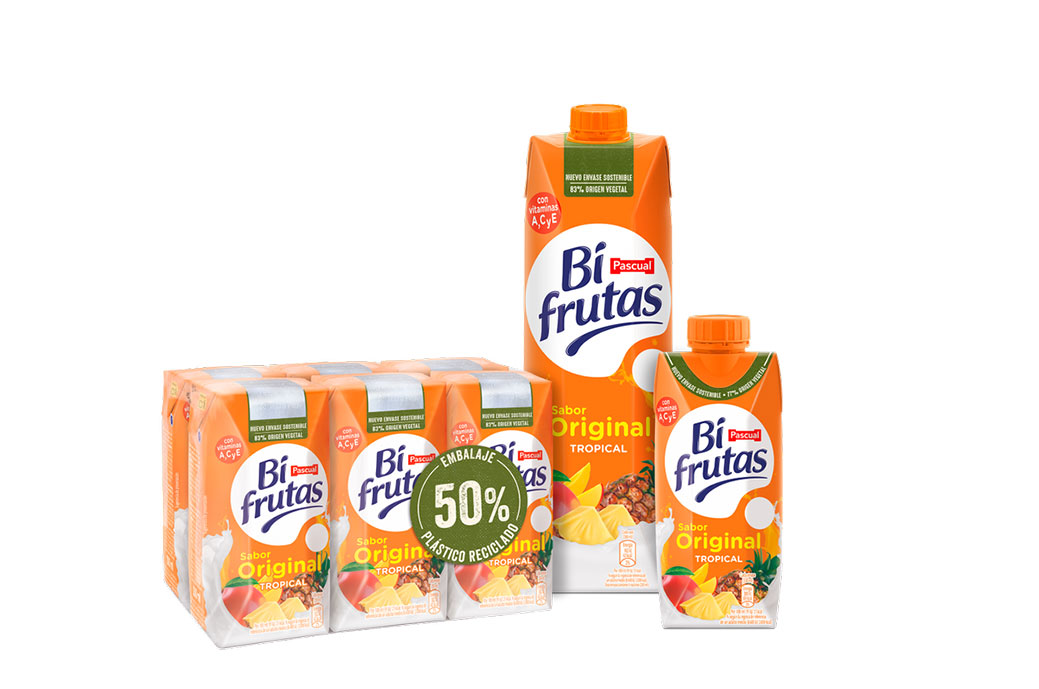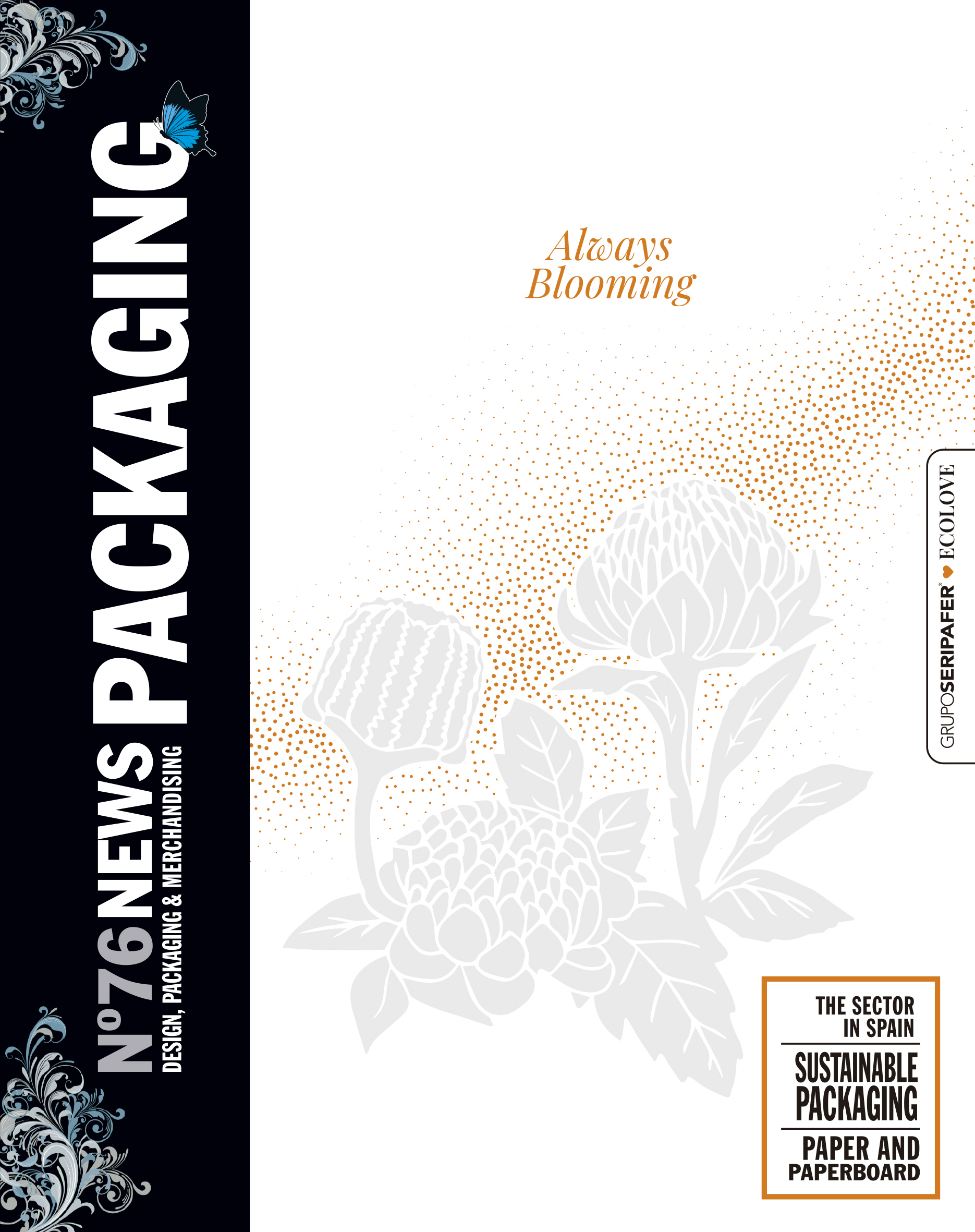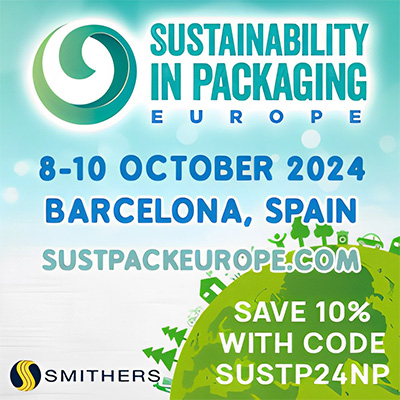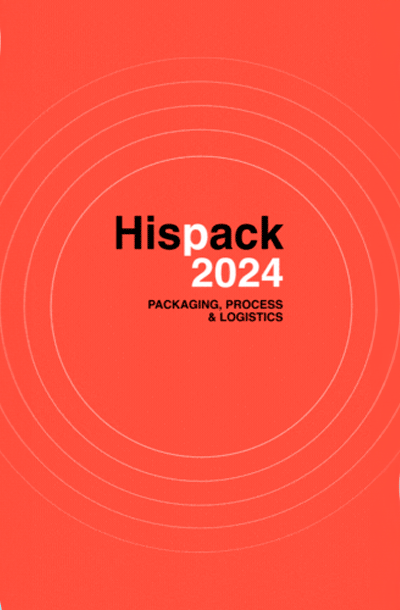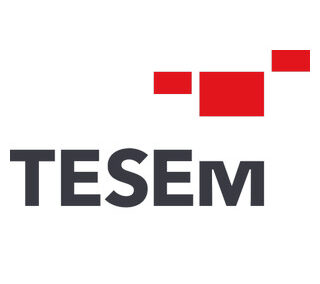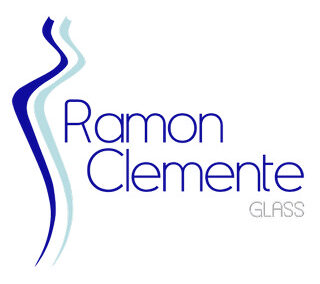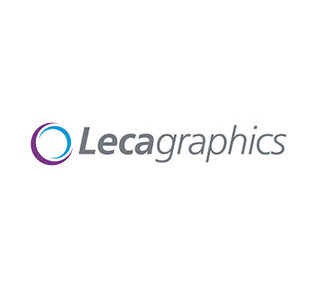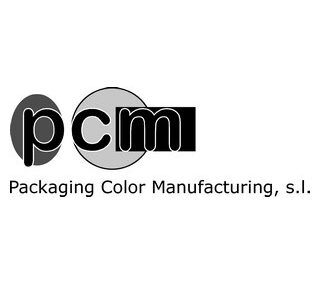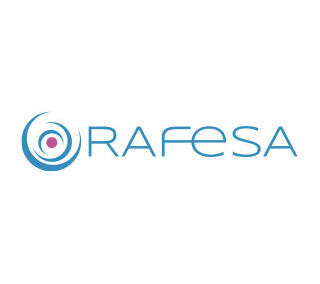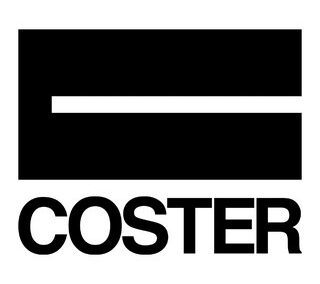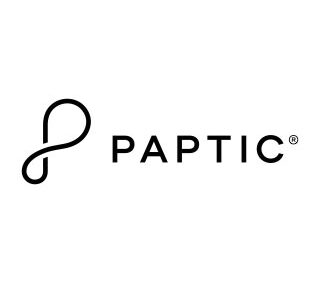Bifruit, the leading brand in the category juice-milk de Paschal, presents different more sustainable alternatives to the packaging of its products. Bifruit is applying this policy based on circularity and recyclability to all the components of its packaging, from the cartons themselves (200 ml, 330 ml and 1 L) to the straws, without forgetting the shrink plastic used to group the containers. Altogether, Pascual's juice-milk brand expects save more than 450 tons of fossil-based plastic per year. In addition, thanks to this strategy, Bifrutas will avoid the emission of 728 tons of CO2 into the atmosphere each year,
According to says Juan Luis González Maroto, director of the Pascual Bifrutas and Juices Business Unit, this announcement corresponds to a global effort by the company to "make innovation a vehicle to favor changes that allow us to produce in a more respectful way with the environment."
In this way, Bifrutas substitutes part of the fossil plastic of all its cartons for plant-based plastic from sustainable plantations. This means that the brand's new PlanT Based briks are composed of at least more than 77% of renewable raw materials, using cardboard that has FSC® certification, from responsibly managed forests that allow CO2 to be absorbed during growth, as well as requiring less energy to transform. In addition, the Bifrutas briks have a new 100% renewable cap and made from sugar cane.
Bifrutas also introduces 50% recycled polyethylene (PE) in the shrink groupers, avoiding the use of nearly 30.000 kg of virgin plastic and reducing carbon footprint. This recycled polyethylene comes from plastics already on the market, which makes it possible to produce less virgin plastic, and therefore it is not necessary to extract or refine more crude for its manufacture. As with recycled paper, through the recycling of packaging that is already in circulation, the environmental impact decreases.
Bifrutas also applies the circularity and recyclability of its products to other elements such as straws, and will replace the current plastic ones, by some more sustainable new straws made of paper, avoiding introducing more than 95 M of plastic straws on the market, and reducing more than 40.000 kg in single-use plastics. At the company level, Pascual has managed to reduce its carbon emissions by 18,7% between 2015 and 2019, approaching the multi-year objectives set by the company for the 2015-2020 environmental cycle.
In addition, in the last year Pascual has achieved the Lean & Green star for reducing its emissions in logistics and transport by 20% since 2015, granted by the Association of Manufacturers and Distributors Companies (Aecoc).

